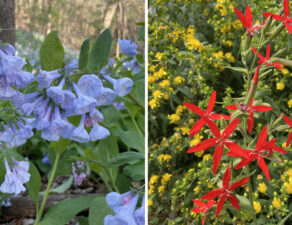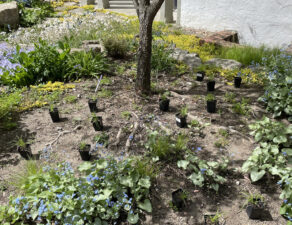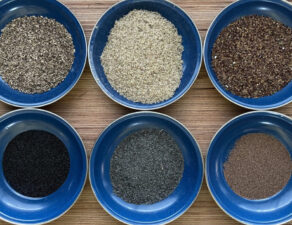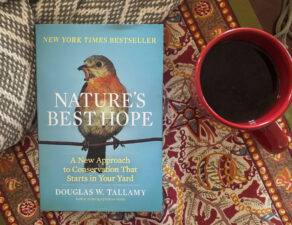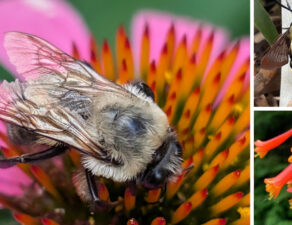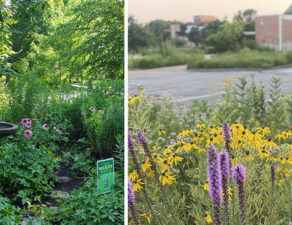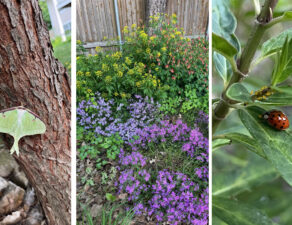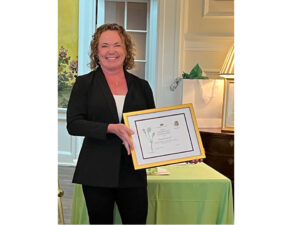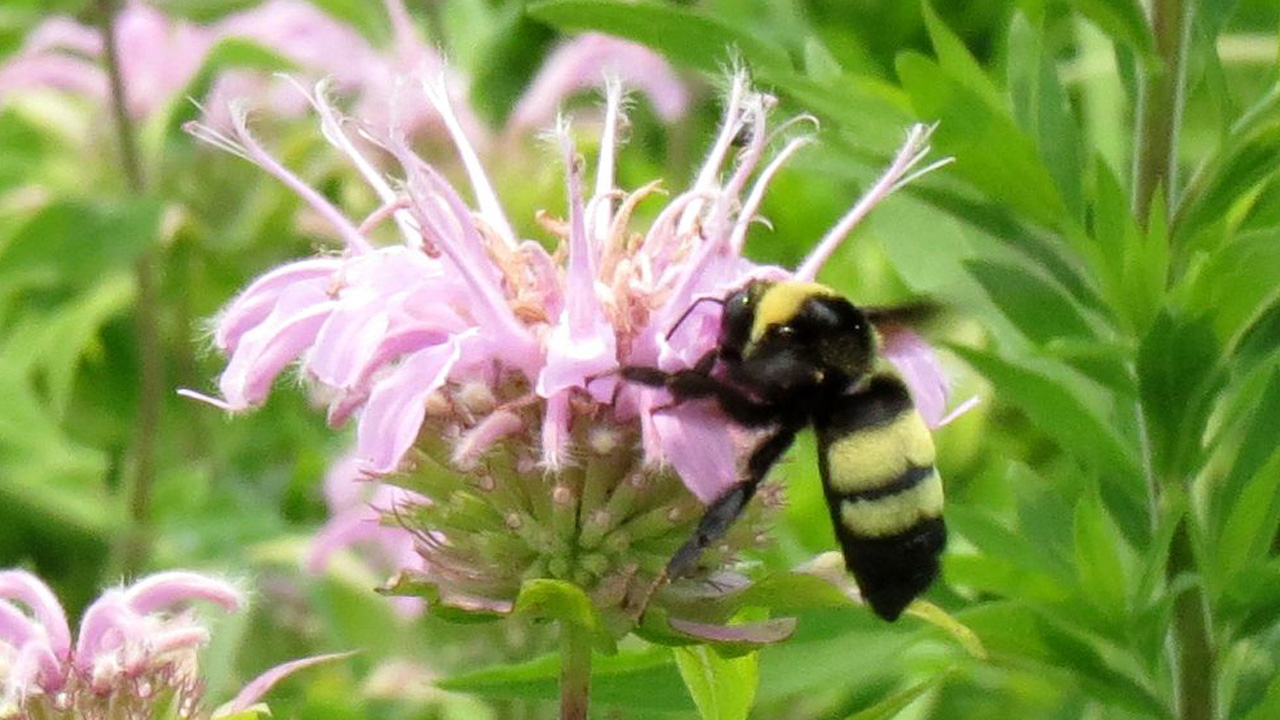
A foreword by Stacia Stelk, Executive Director:
Ten years ago, members of The Westport Garden Club launched The Westport Garden Club Native Plant Initiative, which then became the Kansas City Native Plant Initiative, now known as Deep Roots KC. Speaking on behalf of the Deep Roots team, board members, and native plant community, we are indebted to the club members’ work.
The “Deep Roots” of Native Plant Initiatives
Kristie Wolferman
Excerpted from an Upcoming Book on the 75-Year History of The Westport Garden Club
In February 2014, The Westport Garden Club invited Doug Ladd, Conservation Director for The Nature Conservancy of Missouri, to present a program at the club’s monthly meeting. Ladd’s talk focused on the prairie, which he described as a precious resource and one of the most threatened and least conserved of the world’s ecosystems. WGC members were very inspired by Ladd’s presentation and took it as a call to action. Honorary WGC member Bob Berkebile, environmentalist and founding partner of BNIM Architects, issued the club a challenge “to become pollinators and advocates for native plantings,” and in spring WGC President Nancy Lee Kemper asked Jo Missildine and Kathy Gates to organize a Native Plant Task Force with the mission “to explore the possibilities to promote native plants.
Kathy Gates took the leadership role, becoming the one “crazy lady” who was determined that the club could make a difference. Twenty members joined the WGC Native Plant Task Force, experimented with native plants in their gardens, and researched what existing organizations were doing to benefit native landscapes. They organized a September 2014 trip to Dunn Ranch Prairie, a 2,281-acre property purchased by the Nature Conservancy in 1999. The Conservancy had been working to restore more than 1000 acres of remnant prairie there that had never been plowed.
WGC also partnered with Powell Gardens to provide educational opportunities for the public to learn more about conservation and native plants. They organized presentations by entomologist, ecologist, and conservationist Doug Tallamy from the University of Delaware, a Garden Club of America medalist and honorary member, and by Roy Diblik, garden designer, champion of native plants, author, and owner of Northwind Perennial Farm in Burlington, Wisconsin. Diblik, labeled “one of the most influential plantsmen in the Midwest,” became a GCA honorary member in 2018 and a medalist in 2023.
WGC members personally contacted elected officials, architects, landscapers, and representatives from nonprofit organizations, conservation agencies, and local businesses to attend the presentations. The enthusiastic community response to these presentations led WGC members to imagine what could happen if those who attended were to work together to protect native species and preserve their prairie roots.
With Kathy Gates at the helm, supported by Bob Berkebile, the WGC decided that the opportunity existed to create an organization larger than the club’s Native Plant Initiative. The club convened a group of people from a wide variety of not-for-profit and governmental organizations and businesses across city, county, and state lines to see if they had interest in working together to encourage the use of native plants, support ecological balance, and seek solutions for clean air and water. Representatives from 10 municipalities, four park districts, and groups from the private sector voted unanimously to collaborate, resulting in the formation of the Kansas City Native Plant Initiative (KCNPI).
KCNPI, eventually renamed Deep Roots KC, became a collective impact organization of some 70 multi-sector partners. The shared vision of Deep Roots is that of beautiful, native landscapes connecting communities “where nature and people thrive.” The organization’s mission is “to encourage the appreciation, conservation, and use of native plants in the heartland through educating, collaborating, and facilitating the planting of regenerative native landscapes that are essential for a healthy planet.” Deep Roots uses the slogan “What you plant matters,” because “What you plant matters: for clean water and air, for pollinators and our food supply, for butterflies and birds, for the future of our climate, for human physical and mental health.”
